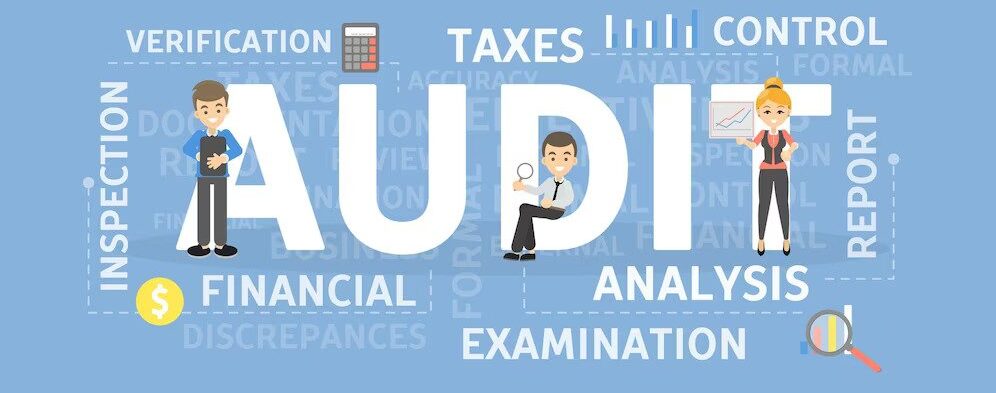The Influence of IAS 18 Revenue on Audit Services in Dubai and UAE
The world today is full of many types of products, transactions, and other activities that both business and individuals do. It can sometimes be difficult for Audit services in Dubai, UAE to decide when revenue should be recognized in financial statements.
This is the main purpose of IAS 18 standard: to provide direction for audit firms in Dubai and other interested parties on revenue recognition and help in applying the revenue recognition criteria.
Influence of IAS 18 Revenue on Audit Services in Dubai and UAE

Understanding Revenue
Revenue is defined as the net inflow of economic benefits during the period of ordinary activities of a Dubai-based company, if such inflows are not associated with increases in equity.
Revenue = Agency Relationship
We want to stress that revenue does not include economic merits received or receivable on the company’s account. However, Dubai, UAE companies typically collect amounts on behalf of other businesses, such as taxes due to the state budget. These amounts should not be considered revenue and should not even be recognized.
Business transactions are quite common today, so it can sometimes be difficult to identify the entity relationship. Entity relationships are where the agent of the company collects the funds on behalf of principal. Revenue may not be recognized because of this.
Mobile operators typically sell additional content as part of their monthly subscription plans, such music or application. It is difficult to establish an entity relationship. The IAS 18 standard specifies 4 criteria, either independent or collective, that indicate that a business acts as the principal.
Dubai’s business is responsible for fulfilling orders and providing goods/services to clients. The inventory risk is also taken by the company before and after the client orders are returned or shipped. The company also has the ability to set prices directly/indirectly
The credit risk associated with receivables owed by customers is also borne by the company. Company audit teams must carefully assess every transaction and, if any factor is met, the company becomes a principal and recognizes revenue.
Measurement of Revenue
The revenue will be measured at the fair value of any consideration receivables or received by the financial audit department. This is IAS 18.
All rebates and trade discounts must be subtracted, and revenue must be calculated net of these items.
The fair value of consideration received can be lower than the nominal amount if the cash inflow is delayed or deferred to the future. The fair value of consideration received can be calculated by discounting future cash flows and converting them to the present value using the imputed rate or interest.
Concerning barter transactions (goods and services)
If goods/services are similar, the exchange cannot be considered transaction revenue generation.
If goods are not similar, however, the exchange can be identified as a revenue-generating transaction and is evaluated in terms of fair value of the goods and services received.
Recognizing Revenue
For revenue recognition, IAS 18 specifies 3 basic scenarios:
- Product sales
- Services
- Dividends, royalties, and interest
- Sale of Goods
To recognize revenue from the sale or purchase of goods, you must meet the following conditions:
- All the risks and benefits of owning the goods have been transferred onto the buyer
- This means that neither the management nor the control over the goods is retained at the same level of ownership.
- It is possible to accurately measure revenue
- The transaction will bring the entity economic benefits.
- It is possible to accurately measure the transaction costs.
Rendering Services
Is it possible to predict the outcome of a transaction with any level of certainty?
Revenues can be recognized depending on the stage of the transaction at the end the reporting period. If this is not the case revenue cannot be recognized beyond the amount of expenses that can be recouped. Is it possible for the transaction’s outcome to be predicted with any level of certainty? These conditions must be satisfied:
- It is possible to accurately measure revenue
- The transaction is expected to bring economic benefits to the entity
- The transaction status can be determined reliably at the end of each reporting period
- It is possible to accurately measure both the transaction costs and the cost of completion.
Dividends, royalties, and interest
When:
- The transaction is likely to bring the entity economic benefits
- It is possible to accurately measure revenue.
- These principles govern revenue recognition:
- To recognize interest, the effective interest method is used as per IAS 39
- According to the content of the agreement, royalties will be recognized on an accrual basis
- When this right is established, shareholders’ rights to receive dividends payments will be recognized.
- Talk To a Professionals Regarding Your Accounting and Auditing Needs
Audit Firms in Dubai audit services to businesses of all sizes. Many entities have been helped by expert auditors including commercial businesses, financial institutions, schools, colleges and non-profit organizations. provide audit services for governmental entities as well as service organizations. Auditors will conduct an audit after we have gotten to know your business.

















